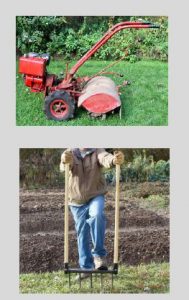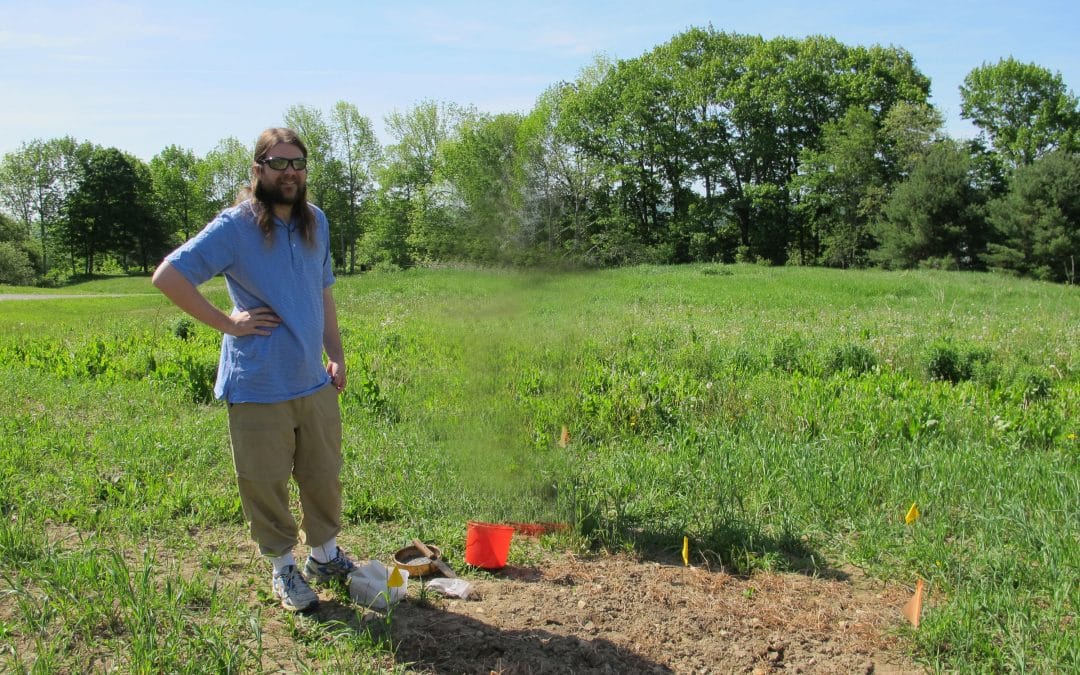
Organic growing includes use of tillers and more natural hand-forking to loosen soil, often for weed management. But do these disturbance devices also hurt soil quality?
Tillage is an increasing topic of discussion. Organic is viewed as largely a tillage based system where cultural and mechanical tools include frequent cultivation and often intensive rototilling for weed control. These practices are increasingly criticized as causing loss of soil structure and organic matter without much evidence.
A recent research product conducted on Woods End Research Farm measured weekly practices of hand-forking, roto-tilling, No-Till and bare fallow. The result was a presentation at the San Diego “2019 – Soils across Latitudes” convention. We used aggregate stability tests, CO2 respiration, N-min and total-C to evaluate to what extent these weekly perturbation events with rototilling and hand-forking caused effects in comparison to no treatment. Soil temperature was not affected by tillage throughout the season. Moisture was higher in roto-tilled plots (where there were no plants). Handforking improved water stable aggregates and it is believed because micro-aggregates are most likely not influenced by tillage.
Large differences were observed with CO2 respiration, but different to what was hypothesized. Both NoTill and Hand-Forking had the highest rates of microbial release of CO2. Roto-tilling reduced, not increased overall CO2 respiration. Surprisingly, the CO2 method with fresh un-processed soil showed in contrast to the “CO2-Burst” lab method more significant differences. We speculate that the popular Burst CO2 test which also requires drying, crushing and sieving soils is disrupting or confounding the very effects that are being studied.
Nitrogen mineralized to nitrate showed strong differences related to treatments. Roto-tilled and bare-fallow plots had the highest (and equal N-min) which is evidence to disprove the popular criticism of tillage as stimulating more organic matter destruction and N-release. At one point in fallow plots the nitrate suddenly dropped which coincided with weeds surging after herbicides wore-off. As soon as the plant were killed, the nitrate came surging back into the soil.
Triplicated total-C tests on all plots showed no-change overall from all treatments with some increase with Hand-forking and a slight, non-significant decline with roto-tilling. The study does prove that short-term effects of tillage on soil quality are readily distinguished, but different than what was hypothesized. Higher microbial respiration appears to be purely associated with presence of plants and the only reason rototilling reduced overall CO2 respiration is that the weeds were gone. From this study we’d say that the emphasis in popular literature that organic tillage “destroys carbon” is probably not true for northern temperate regions. The most important finding is that plants appear to be key to sustaining and increasing test qualities associated with soil health- and that weedy organic systems may also be the most healthy soils. Poster at: SSSA-LINK

